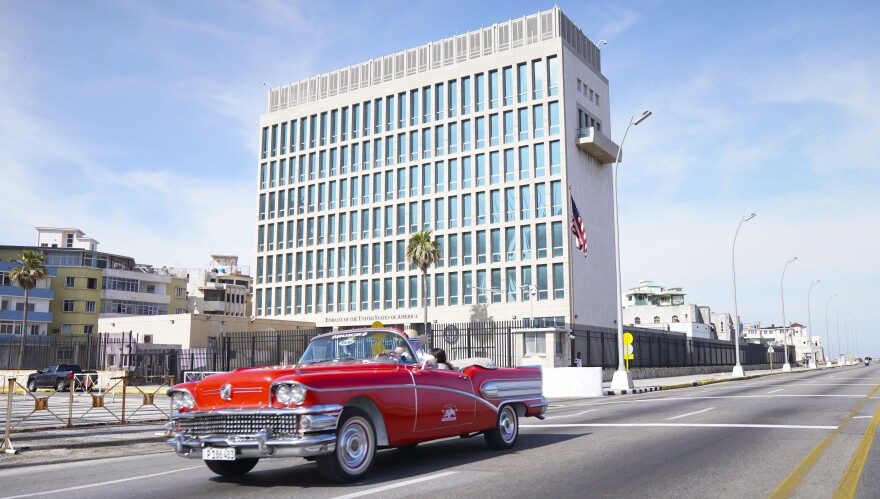A CIA investigation has not found evidence that a foreign country was responsible for mysterious ailments suffered by hundreds of U.S. diplomats and intelligence officials in multiple countries in recent years.
Most of the illnesses appear related to previously undiagnosed medical conditions or stress, according to an interim report by the spy agency.
However, the CIA emphasized that it is still investigating around two dozen cases that cannot be explained, and which were first reported by officials at the U.S. Embassy in Havana, Cuba, in 2016.
"Some of our toughest cases remain unresolved," said a CIA official who spoke on condition of anonymity. "We have so far not found evidence of state actor involvement in any incident."
The official added that the CIA has "not ruled out the actions of a foreign actor."
Those afflicted have described suffering from a sudden onset of ailments that include debilitating headaches, ringing in the ears and balance problems.
"While we have reached some significant interim findings, we are not done," CIA Director William Burns said in a statement. "We will continue the mission to investigate these incidents and provide access to world-class care for those who need it."
Those afflicted call for further study
Meanwhile, some of those who have suffered ailments said there are still many unanswered questions.
"I'd urge continued perseverance and patience," said Marc Polymeropoulos, a former CIA officer who was struck with crippling headaches while on a trip to Moscow in 2017.
"These are colleagues of mine, who I know suffered permanent injuries," said Polymeropoulos, who retired because of constant migraines.
Sen. Mark Warner, the Virginia Democrat who heads the Senate Intelligence Committee, said, "there is no question that members of the intelligence workforce have suffered from conditions requiring a medical response."
He said the committee "will continue pressing for answers on a bipartisan basis."
The group Advocacy for Victims of Havana Syndrome said in a statement that the CIA report "must not be the final word on the matter."
"The CIA's newly issued report may be labeled 'interim' and it may leave open the door for some alternative explanation in some cases, but to scores of dedicated public servants, their families, and their colleagues, it has a ring of finality and repudiation," the statement said.
Some of those afflicted said that they felt that not enough was being done to help them during the Trump administration. Many were encouraged by efforts the past year by the Biden administration, which has ramped up efforts to find out what was causing the ailments.
Starting in 2016, a few dozen cases were reported by U.S. officials, mostly in Cuba and China. But as the issue received more attention — and remained unexplained — the U.S. government encouraged workers to come forward if they were suffering symptoms.
Over the past couple of years, the number of reported cases has increased dramatically. The CIA and other government agencies have never provided specific figures, but some reports now put the number at up to 1,000.
Causes found in most, but not all cases
The CIA found that most of the symptoms could be attributed to ailments that had not been previously diagnosed. Some may be linked to stress or environmental factors, the report found.
But there are still unresolved cases.
"We've narrowed the cases down to a subset that remain unexplained," the CIA official said.
Some former CIA officers and diplomats believe Russia was likely responsible, a charge Russia has denied.
In the 1970s and '80s, the U.S. government regularly complained that the Soviet Union was beaming microwave radiation at the U.S. Embassy in Moscow in an attempt to obtain intelligence.
Microwave radiation has been suspected in the recent cases. The National Academies of Sciences, in a December 2020 report commissioned by the State Department, found that microwave radiation was the "most plausible" cause of the illnesses, but cautioned that it could not reach a definitive conclusion.
President Biden signed a law last year that compensates victims of Havana syndrome, and calls for a payment plan to be established by April. The CIA report raises questions about who might now qualify for a payment.
Copyright 2022 NPR. To see more, visit https://www.npr.org.



